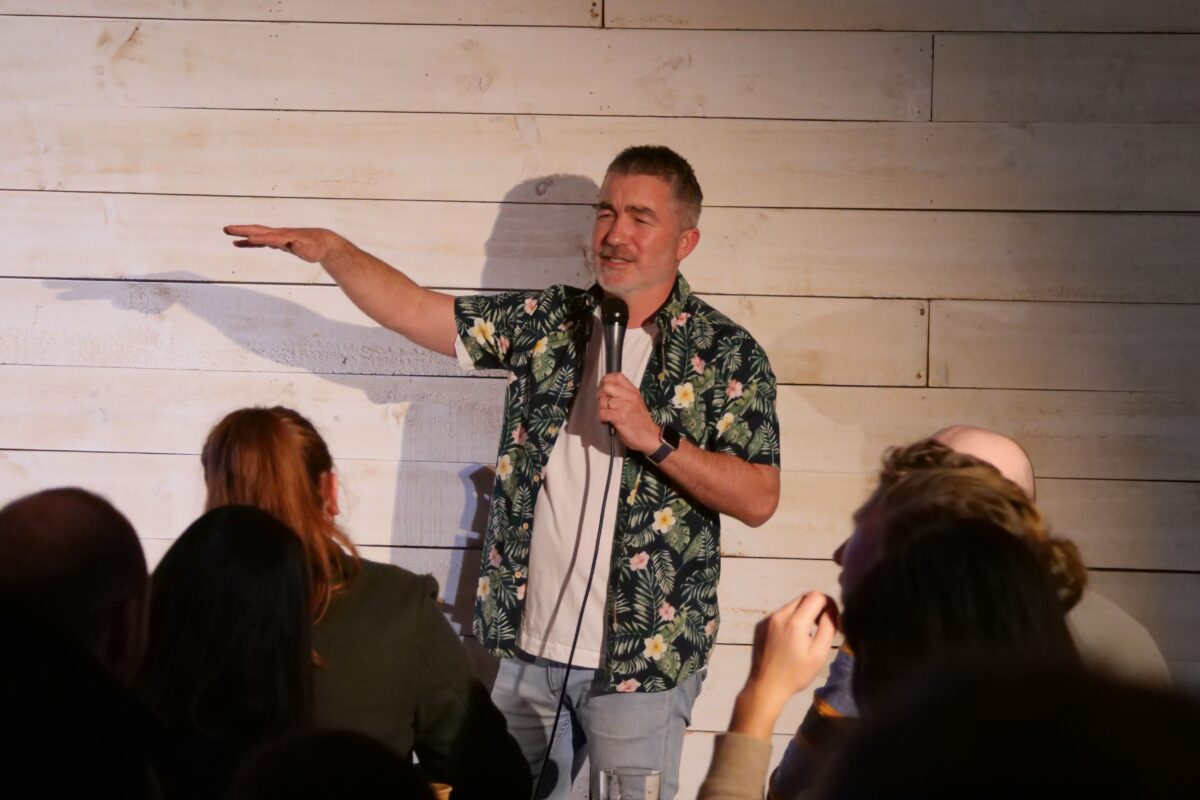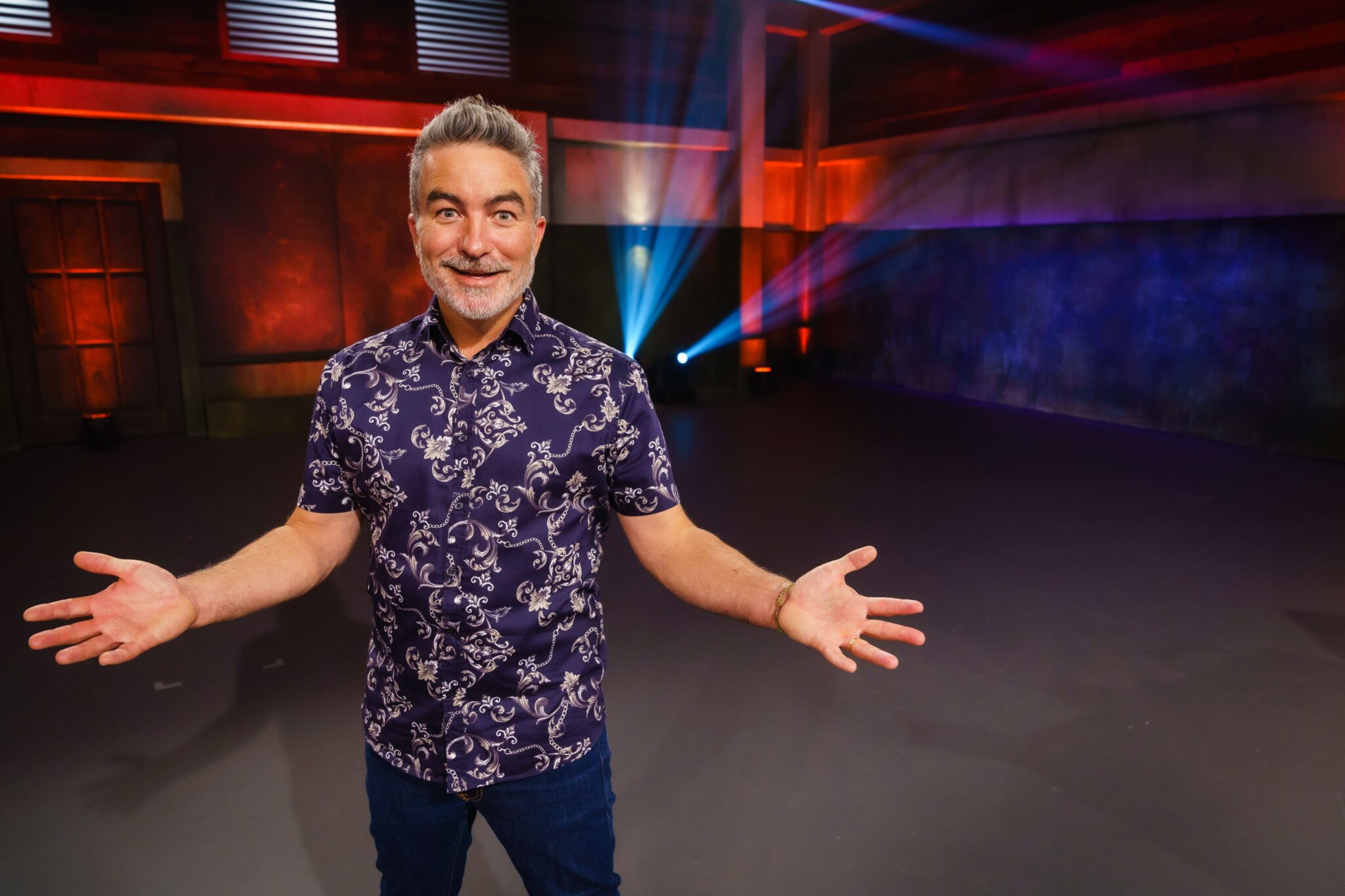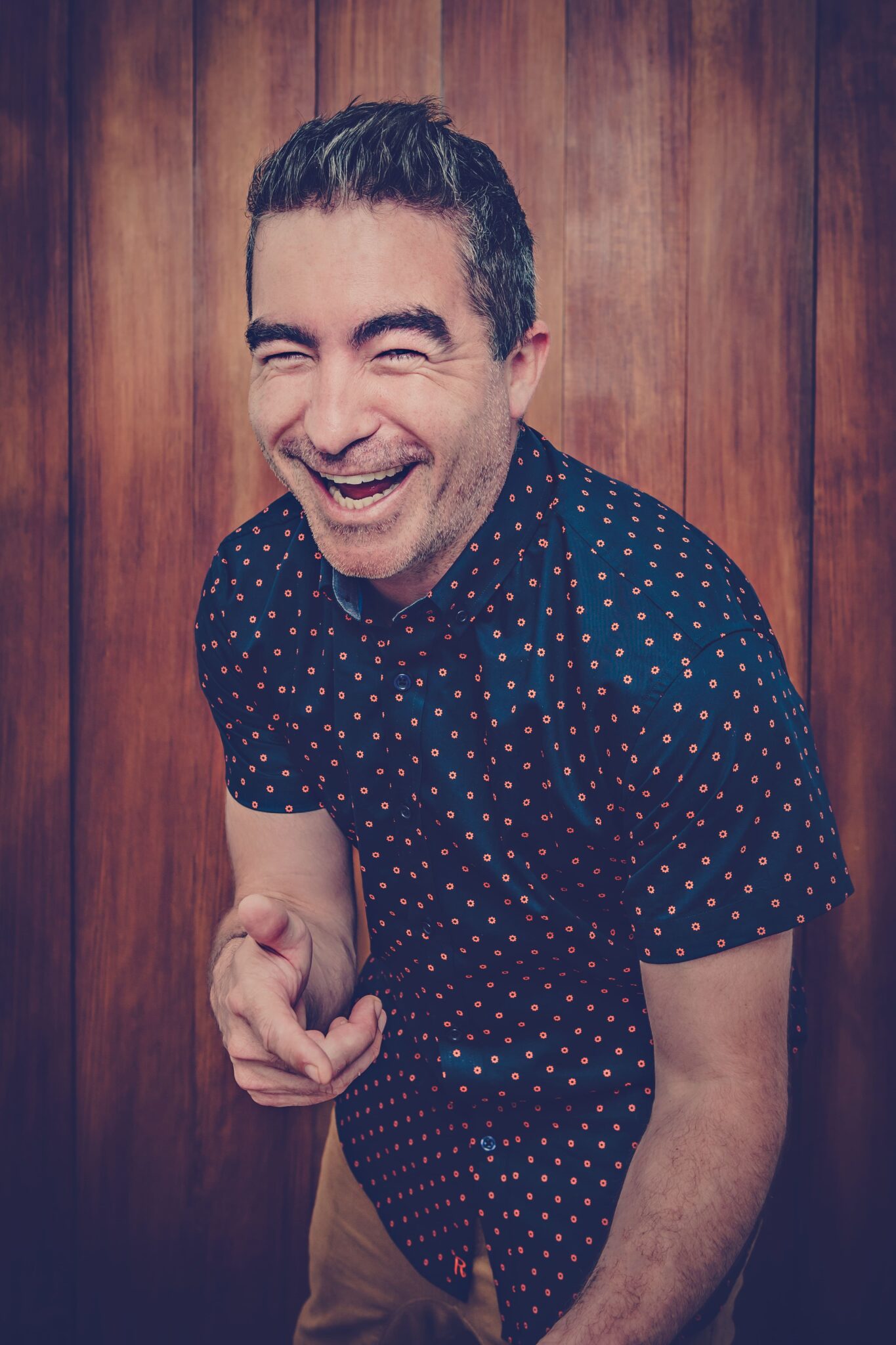The science of comedy

- Written by
- Abby Beswick
Humour is enticingly universal and elusive. We all understand instinctively whether something is funny, yet it’s hard to explain why in a way that encompasses it all. The dictionary defines humour simply as “the quality of being amusing or comic ”. From films, to plays, memes or TikToks, we’re all looking for laughs. And it can take a range of forms, including witty conversation, quips, sarcasm, slapstick and deadpan. Of course, most of the humour we experience arises from everyday life.
We are all born with the impulse to laugh – an instinctive behaviour that is programmed by our genes. When we laugh it releases endorphins, the feel-good chemicals in our bodies, making us feel happy and relaxed. So it’s not surprising, funny people tend to receive positive attention and admiration.
“We call it in the industry, funny bones,” says comedian Dai Henwood. “You just know if someone’s got funny bones.” He goes on to tell me about an uncle who told really average jokes “but he was absolutely hilarious”. It was hard to put your finger on exactly why, he was simply a funny person, he says.
Henwood is undoubtedly a funny person. One of New Zealand’s best-loved comedians, the 45-year-old is a familiar face on our TV screens and performing stand-up around the country. The intoxication of making people laugh started young for Henwood, who knew he wanted to be a comedian when he was five.
“I can remember the feeling of making people laugh – it just made me feel really good and I saw how good it made other people feel and that just drew me to it.” By his final year at primary school, almost everyone in Henwood’s class predicted he would become a comedian.
A life of laughs
Comedy has been a powerful force in Henwood’s life. He grew up in a family where performing and comedy were part of daily life. His father, Ray Henwood, was a professional actor who starred in one of the country’s longest-running sitcoms, Gliding On, as well as a number of serious and comedic roles. Growing up in the theatre gave young Henwood a behind-the-scenes understanding of art. “A lot of people just see the performance, but they don’t see the work that goes into it.”
When Henwood announced to his family at age 17 that he had decided on comedy as a career, they were right behind him. “I was lucky to have a very supportive family, who viewed the arts as a really important job.” Going onstage for the first time was a turning point, he says. “Until you get onstage in front of an audience, then you’ll know if it’s for you or not. It was just in my soul that I had to do it”.
He began his career on TV show Pulp Comedy and in 2002 he won the prestigious Billy T James Award. Since then he has taken his comedy around the world, performing in comedy festivals and solo shows. He’s also become a well-known TV personality on a number of shows including comedy travel show Roll the Dai, 7 Days and Lego Masters.

Beyond a joke
Henwood agrees comedy is a science, but there are other elements to it. “I would liken it to something like gravity – it just is. You can’t create gravity, it just is, and that’s the same with comedy.” You can study comedy all you like, but that won’t make you a good comedian, says Henwood. There are a lot of comedians and you don’t know why they’re funny, it might be in the way they look at the audience, the way they move, their delivery, or something that’s harder to define.
It might be surprising to many people how long the process of writing jokes and putting together a set can take. Jokes and funny ideas pop into Henwood’s head throughout the spectrum of everyday sad, happy and difficult situations. From there he’ll spend time developing them, and possibly build a whole story around them before testing it out at an open mic night. Those seven minutes onstage might produce one or two minutes of usable material. He goes home and records it, edits it and continues to develop it further.
It can take months to write a 30-minute set, which he’ll then tour with for up to 12 months. Even when his set is finished and he’s touring, Henwood tailors it to each audience, often cutting a bit out or changing tack on stage, depending on how the audience is responding. “Because comedy’s so organic it will keep evolving.”
Comedy connects us
Do comedians share any specific personality traits? They’ll do anything for a laugh, says Henwood, and that brings people together in a powerful way – “comedy is what binds us all”. He’s right of course; comedy needs a connection to work.
There’s an incredible camaraderie among comedians, of simply enjoying being around people who make you laugh and wanting each other to succeed, says Henwood. His favourite part of the job is sitting in the green room before a show, talking and laughing with other comedians. “You don’t want the person before you to bomb, you want them to have a great set because the better everyone’s going the better you go.”
One of the things Henwood loves most about comedy is its authenticity. “Comedy is so honest. You can’t fake laughing, so as a comedian you know immediately whether you’re going bad or good.” When you strike the right chord with an audience it’s an incredible feeling.“When you have that moment where it feels like the audience is with you and you’re riding the wave, it’s amazing.”

Finding humour in good times and bad
Comedy and laughter has always been central to Henwood’s life. But it’s in some of the darkest times during his recent health struggles that he’s truly appreciated what it offers. Recently Henwood revealed he had been diagnosed with stage four bowel cancer, which has spread to his liver and lungs.
He has undergone chemotherapy, radiotherapy and surgery. Throughout it all, comedy has been an escape, a release and a friend. “The fact that I’ve been able to find a smile and find laughter in my life is a blessing.” Even while getting an MRI scan or sitting chatting with nurses, funny ideas or jokes have popped into Henwood’s mind. Being on stage has also been therapeutic.
“As someone who has been dealing with cancer for the last three years, it’s been something that’s huge for me, because when I’m performing I think of nothing else. I’m just in the moment of telling jokes and wanting to share jokes with the audience. It’s the perfect point of mindfulness.”
A self-described introvert, Henwood says he’s quieter at home but being silly and joking around have always been part of family life. He’s also passed his passion for humour onto his children, aged 10 and 7. “As a comedian, when one of my kids says something funny and it’s the combination of the joke is funny and the delivery is good, I get a huge swell of pride.”